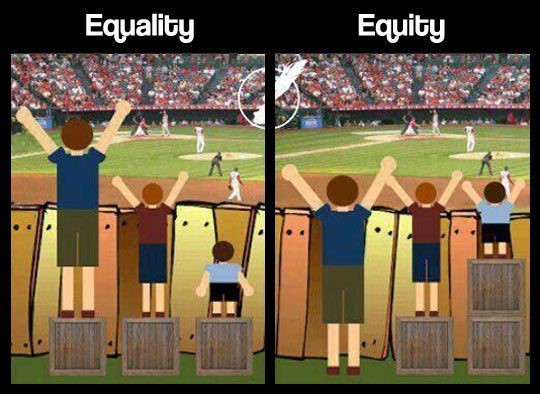What can I do?
If you or someone you know has experienced racial discrimination in a work-related situation, these are the main ways available to report the discriminatory act and seek redress:
Make a complaint to your employer
Many employers have anti-discrimination policies in place. If this is the case at your workplace, it is important for you to obtain a copy of these policies in order to evaluate if they have been breached and, if so, to use the complaint mechanism in place to report such breaches. If your workplace does not have any such policies, it is still possible to talk to your direct supervisor or to someone in the human resources team about what happened and inquire if there is any internal way to remediate the situation. This might be the quickest way to resolve a problem.
Make a complaint to your Union
Additionally, if you are a member of a union you can talk to your union representative to seek advice and assistance.
Submit an online enquiry to the Fair Work Ombudsman (FWO)
The FWO is an independent statutory office that aims to ensure compliance with workplace laws in Australia. To achieve this, one of the FWO’s roles is to assess complaints of suspected breaches of workplace laws. To make a complaint, a person must submit an online enquiry.
After receiving an enquiry, the FWO will first provide information about the law regulating the issues involved in the dispute to both parties so that they can try to reach a solution themselves. Should this step fail, the FWO’s next step is to conduct a mediation process. You can read more about these steps here.
The services provided by the FWO are free, however, it is important to note that their processes are voluntary and they do not have the power to force employers to take any specific action.
A dismissal based on discriminatory grounds may constitute an unfair dismissal. If you believe your employment was terminated unfairly and wish to apply for unfair dismissal, it is important to note that there are some requirements you need to fulfil before applying: the application must be lodged within 21 days of the dismissal taking effect and you will need to pay an application fee. We recommend that you first read carefully the commission’s instructions before submitting your application.
If you are a witness of a discriminatory act or a target who does not wish to initiate a dispute with your employer or potential employer, you can also make an anonymous report to the FWO. The report can be made in English or in other specified languages.
Lodge an application with the Fair Work Commission (FWC)
The Fair Work Commission is Australia’s national workplace relations tribunal. It is an independent body with power to carry out a range of functions under the Fair Work Act 2009, including dealing with applications in relation to unfair dismissal and resolving a range of collective and individual workplace disputes through conciliation, mediation and in some cases public tribunal hearings.
Someone who has experienced racial discrimination in a work-related situation can lodge a general protections application with the FWC. After receiving the application, the FWC will try to assist the parties involved in the dispute to reach a solution through the conference process. Should this process fail, the parties are allowed to to take the matter to the Federal Court or the Federal Circuit Court.
There is an application fee of $70.60* (as at 27 March 2018) to lodge an application with the FWC, which can be waived in cases of serious financial hardship.
Take your case to a federal or state court
Any matter related to racism can be reported to the Australian Human Rights Commission (AHRC) or other state anti-discrimination bodies. You can click here for more information about how to make a complaint to the AHCR or to a state body.
While most work-related matters are dealt with federally, in some circumstances, there are specific state courts created to deal with work-related matters. For example, the NSW Industrial Relations Commission is the court which hears matters relating to the workplace in the state public sector and related to local government employees in NSW. You can verify if your employment is covered by the national system here.
As court procedures can be complicated and vary greatly from state to state, we recommend that if you wish to seek redress through the court system, you first seek advice from your nearest Community Legal Centre and/or Legal Aid to get further assistance on how and to whom you should make a complaint.
Before making the decision to start a court procedure, it is important to keep in mind that these procedures can be quite costly and lengthy. If this does not seem to be the best option for you, there are alternative dispute resolution methods available at anytime.
Go to the police
In some cases, a racially discriminatory act will constitute a crime and can be reported to the police. Which acts constitute a crime will vary depending on the state or territory you are in. If you wish to go to the police, we advise that you consult with a lawyer or your local police station first.
Make a complaint to the Islamophobia Register
In addition to the above legal and institutional reporting options, if the incident was Islamophobic you might also consider sending a complaint to the Islamophobia Register. Making a report to the Islamophobia Register ensures that incidents of Islamophobia and Anti-Muslim sentiments are securely recorded and analysed to build a body of knowledge about Islamophobia in Australia.
Research
Unfortunately, racial discrimination in employment is common. One of the biggest surveys on racism in Australia (commissioned by SBS with Western Sydney University) revealed that 32% of respondents reported having experienced racism within their workplace. Among these cases, those whose mother tongue was a Language Other Than English (LOTE) reported the highest rates of workplace racism (54.1%).
The laws
Work-related discrimination can take place at all stages of employment, ranging from recruitment to dismissal. In Australia, there are laws prohibiting racial discrimination in all these stages.
The Racial Discrimination Act (RDA) “makes it unlawful to discriminate when advertising jobs, during recruitment and selection processes, when making decisions about training, transfer and promotion opportunities, and in the terms, conditions and termination of employment.“
As explained by the Australian Human Rights Commission (AHRC), the RDA applies to all types of employment (full-time, part-time, casual, trainee, contract workers, commission agents, apprentices and those on probation) as well as to all employers and employees (Commonwealth Government, state government and private sector).
The RDA also makes it a criminal offence for a person to refuse to employ, dismiss from employment or in any way threaten or prejudice a person in his or her work environment because that person has made or intends to make a complaint related to racial discrimination to the Australian Human Rights Commission (AHCR) or in any other way contributed to the work of this Commission on matters relating to racial discrimination.
In matters related to employment, the RDA is reinforced by the Fair Work Act 2009, which determines that an employer cannot take adverse action against an employee or prospective employee because of the person’s race, colour or national extraction.
Further protection can also be found in state or territory anti-discrimination laws, and you can click here for more information about how to make a complaint to the AHCR or to a state body.
Advertising vacant positions
A good job advertisement will focus exclusively on the skills and experience required for the performance of the position. Personal characteristics such as race, colour, ethnic or national origin should not be part of the requirements unless the employer can objectively demonstrate that this is a genuine requirement of the job.
For example, an employer might determine that a specific position to work within the Aboriginal community or to develop an educational programme on Aboriginal studies must be filled by someone who identifies as an Aboriginal person, as having an Aboriginal cultural background is a genuine requirement for that specific job. Similarly, a cinema or theatre director can limit the applications for the role of Nelson Mandela in a movie or play by requesting only black male actors.
It is also lawful for employers, including the Commonwealth Government and state governments, to apply special measures (also known as affirmative action) that benefit certain disadvantaged groups in order to guarantee that they enjoy full and equal human rights. This means that instead of treating everyone with equality, in specific cases, employers can take equity measures that differentiate between candidates in different situations in order to redress previous imbalances and obtain equal outcomes for people in different circumstances. The difference between equality and equity is illustrated in the image below credited to Craig Froehle.

Although employers are not allowed to discriminate against potential employees on the basis of their national origin or immigrant status, this does not mean that employers have to hire a person who does not have a valid work visa. Australian employers are only allowed to employ people who are entitled to work in Australia. Employers who disrespect this can face infringements or civil penalties and non-citizens who engage in work that is not allowed by their visa conditions commit an offence under the Migration Act 1958 (Division 12, Subdivision A, S. 235).
If you are an employer interested in learning more about hiring legal workers, please refer to the Department of Home Affairs’ guide for employers on legal workers.
For employers interested in learning more about preventing discrimination in job advertisements, please refer to the Australian Human Rights Commission factsheet: A step-by-step guide to preventing discrimination in recruitment.
Recruitment processes
It is unlawful for an employer to discriminate against someone during any step the recruitment process. For example, it is unlawful for an employer to instruct their human resources team to reject all applications coming from people of Asian decent.
Short-listing, interviewing and recruiting applicants should be done based on candidates’ work experiences and skills and how suitable they are for the position. Personal characteristics such as race, ethnicity or national or religious origin should have no influence in this process. One way of achieving this is by using a process called “blind recruitment”, which helps recruiters eliminate unconscious bias. The process involves removing any and all identification details (such as ethnic background, gender, name and age) from candidates’ resumes and applications in order to choose the candidates solely on the basis of their skills and qualifications. If you are interested in blind recruitment, you can read more about this process here.
For employers interested in learning more about preventing discrimination recruitment processes, please refer to the Australian Human Rights Commission factsheet: A step-by-step guide to preventing discrimination in recruitment.
Transfers, training and promotions
According to the Racial Discrimination Act (RDA), it is unlawful “to refuse or fail to offer or afford a second person the same terms of employment, conditions of work and opportunities for training and promotion as are made available for other persons having the same qualifications and employed in the same circumstances on work of the same description (…) by reason of the race, colour or national or ethnic origin of that second person or of any relative or associate of that second person.“
This means that it is unlawful for an employer to treat an employee less favourably than others occupying the same position in the same type of employment because of their race, colour or national or ethnic origin. Some common forms of less favourable treatment in the workplace include but are not limited to:
- being denied access to training, transfers and/or promotions;
- being subject to unfair terms or conditions of employment;
- having your shifts reduced;
- consistently having to do the most difficult or physically demanding work when others do not have to do the work;
- being excluded or isolated; or
- working for unequal pay.
Termination of employment
According to the Racial Discrimination Act (RDA), it is unlawful to dismiss a person from employment by reason of race, colour or national or ethnic origin. This means that it is unlawful for an employer to dismiss an employee because he or she belongs to a specific race, colour or national or ethnic group. It is also unlawful to terminate someone’s employment because that person is related to or in any way associated with someone of a specific race, colour or national or ethnic group. Similarly, an employer cannot dismiss someone because he or she has made a complaint about racial discrimination in the workplace.


